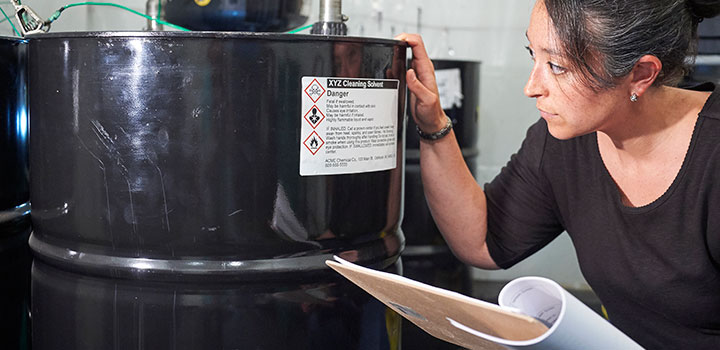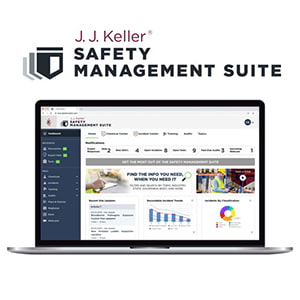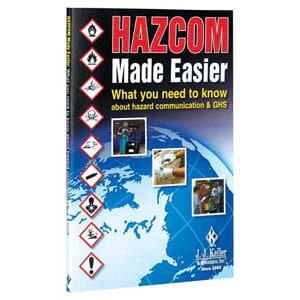Interested in learning more about this service? Call 888-473-4638 to talk with a compliance specialist today!
Chemical Management Service
An effective HazCom safety program protects your employees from harm and your company from violations, fines and legal liability. The Chemical Management Service manages the entire process for you. It's the easiest, most effective way to keep your company in compliance with OSHA Hazard Communication Standard, 29 CFR 1910.1200.
Service & Systems Working for You
Regulatory Advisors
You'll work with a dedicated regulatory specialist who will become an extension of your safety team as they tailor the service to your needs.
Online Tools
You can access our cloud-based J. J. Keller® SAFETY MANAGEMENT SUITE 24/7 to search your chemical and Safety Data Sheet (SDS) database.
How The Program Works
We'll administer a custom program for your company that covers:
Chemical Advisory Services
- Provide access to a dedicated J. J. Keller® Regulatory Advisor
- Conduct annual assessment of your written HazCom program
- Review chemical receipt process and provide recommendations based on best practices
- Identify opportunities to consolidate inventory
- Provide access to foundational HazCom training content
Chemical & SDS Setup & Management
- Build and maintain an electronic, searchable database of your chemicals in the J. J. Keller® SAFETY MANAGEMENT SUITE (SMS) (Unique programs available for SMS and non-SMS clients)
- Acquire and track SDSs to ensure there is an up-to-date sheet for every chemical
- Provide employee access to electronic SDSs (Minimum SMS subscription required for electronic employee access to SDSs)
- Create and regularly update SDS binders
- Generate GHS-compliant secondary labels
HazCom Policy Review
- Audit your existing written HazCom program (or create one if none exists)
- Incorporate Federal and state-specific regulations into your HazCom program
- Provide recommendations to improve safety and compliance
Training
- Partner with you to create custom training content specific to your HazCom program and hazards in your chemical inventory
Reporting
- Identify chemicals with reportable quantities to help you prepare for Tier II reporting
Simplify chemical management with help from J. J. Keller. Call today at 888-473-4638!
FAQs
- Keep a list of hazardous chemicals in the workplace
- Prepare and follow a written HazCom program
- Make sure all chemical containers are properly labeled
- Make sure safety data sheets (SDSs) are available to employees
- Provide hazard communication training to employees
A written hazard communication program helps employers to inform and train their employees properly and to design and put in place employee protection programs. It also provides necessary hazard information to employees, so they can participate in, support, and be part of the protective measures at their workplaces.
Employers must have a GHS-style, 16-section SDS for each chemical which is considered to be a health or physical hazard as those terms are defined in the standard, except for those products specifically exempted under the HazCom regulation at 1910.1200(b)(6).
OSHA says you must train "employees," which are defined in 1910.1200 as "a worker who may be exposed to hazardous chemicals under normal operating conditions or in foreseeable emergencies. Workers such as office workers or bank tellers who encounter hazardous chemicals only in non-routine, isolated instances are not covered."
Workers who encounter hazardous chemicals only in non-routine, isolated instances are not covered. For instance, if a receptionist or salesperson occasionally delivers a phone message to an area where chemicals are used, he or she would not be covered. But if workers routinely bring production or sales paperwork to that area, or if they deliver or pick up sealed boxes of chemicals, they have to be trained. If you are not sure if certain employees are "routinely exposed," include them in the training. It is better to train too many people than to miss some people and risk an OSHA fine.
Under the HazCom Standard, your employees have the right to training about:
- The HazCom Standard itself
- Operations in the workplace where hazardous chemicals are present
- The hazards of the chemicals in their work area
- How they can detect a release of those chemicals
- How they can get a copy of the written HazCom program
- Where SDSs are located and how they can access them
- The labels found on containers of hazardous chemicals





